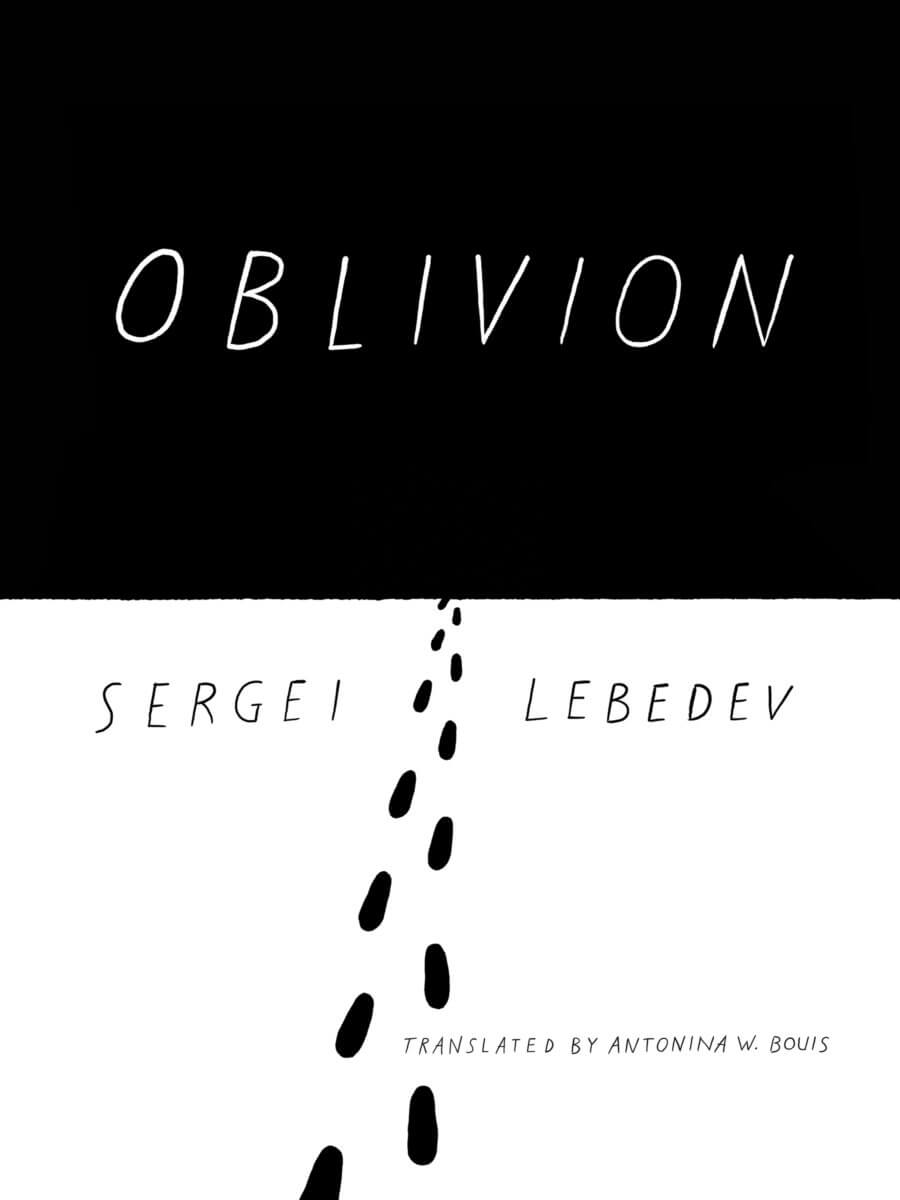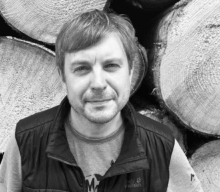
In one of the first 21st century Russian novels to probe the legacy of the Soviet prison camp system, a young man travels to the vast wastelands of the Far North to uncover the truth about a shadowy neighbor who saved his life, and whom he knows only as Grandfather II. What he finds, among the forgotten mines and decrepit barracks of former gulags, is a world relegated to oblivion, where it is easier to ignore both the victims and the executioners than to come to terms with a terrible past. This disturbing tale evokes the great and ruined beauty of a land where man and machine worked in tandem with nature to destroy millions of lives during the Soviet century. Emerging from today’s Russia, where the ills of the past are being forcefully erased from public memory, this masterful novel represents an epic literary attempt to rescue history from the brink of oblivion.
Best Translated Book Award finalist and Wall Street Journal Top 10 Novel of the Year
Excerpt from Oblivion
The sun had filled the lake at the foot of the mountains with light; convex, like a drop on glass, its contour struck me in the eye. A mean trick of nature, a joke that had waited several million years: the lake looked like Lenin’s profile, which was imprinted on us by medals, badges, stamps, statues, paintings, and drawings in books.
The lake with its thick, almost pastry-like icing of sunny light seemed like a monstrous monument, monstrous because the natural forms easily and willingly took on the features of something man-made, and this acceptance, without coercion, clearly evinced the meaningless, memory-less existence of nature, which we had anthropomorphized much too frequently.
Seeing this betrayal of matter—betrayal of the men who climbed up to the heaps every day from the barracks, looking at the profile of the dead leader in whose name they were forced to labor—I rejected the feeling of closeness with these mountains, from the line of imagination that had anthropomorphized them. A different, older feeling arose: the possible humanity of nature was just a mockery, a devilish joke; man can count on no one in nature except himself.
Soon after—the expedition was continuing work in the area of the abandoned camp—I went out on a solitary hike. Two days into the trip rain clouds settled over the mountains and it rained, the wind blowing the drops horizontally, parallel to the ground; I was wearing good weatherproof gear but still I felt chilled. The bad weather was here to stay, the mountain tundra was soaked, and everything that was good for the campfire—old logs, reindeer moss, and switches of polar birch—was damp; a heavy front was coming from the west, and it was clear that by nightfall the rain would change over to snow, a northern summer blizzard, and the rocks in the mountain passes would be icy.
I was about to turn back when I noticed an awning of boards and tar paper over an old test tunnel, one of many such holes made all over the slopes for several kilometers around the camp; the prisoners opened up the ground and rubble to reach the indigenous rock for testing. The canopy had been made recently, otherwise the wind and snow would have destroyed it; someone without a tent was sheltering from the weather.
A fugitive prisoner, a zek, lay beneath the awning; the pea jacket, tattoos, everything gave him away; the soles had come off his tarpaulin boots, tied with a cord, and his feet were bleeding; he couldn’t go on without shoes, he had torn pieces from his jacket and wrapped them around his feet, but the fabric with cotton batting fell apart in the rain; he saw the snow clouds over the top of his tunnel and he probably knew he would die that night.
I knew what he would have done to me if he had found me asleep in my tent; the fugitive was very skinny, his face was overgrown with hair with bits of moss, leaves, wood chips, and dirt in it: he had been wandering in the taiga for a month or more, having decided to run not toward the railroad but over the mountains to a different region where they would not be looking for him. He huddled in the hole, bent over, holding a three-sided shiv made from a file, no longer human or even humanoid; he was a wood spirit crawled up from underground. If I had had a rifle, I would have shot him and covered him with stones—out of fear, out of the sensation that this really was an underground creature that had killed an escaped prisoner.
But I didn’t have a rifle; I went down into the hole. The fugitive pushed the shiv aside; he was too weak to kill me with any benefit to him. I could simply go away, as if I hadn’t seen the canopy, and the fugitive would freeze to death; who knew why he was in prison, how he had escaped, if he had comrades and where they were; what he ate, mushrooms or human flesh; I went down, turned on my gas stove and started some bouillon cube broth. I realized that I was probably saving a murderer, maybe a rapist, robber, cannibal; he had been in the taiga too long to have had enough food in his pockets for that period, he was giving me too wild a look—as if he saw me gutted, freshly butchered. I should have left, gone back to our camp, radioed for a police helicopter, but I couldn’t do it; I tried to imagine his victims, whether they would have been prepared to kill him in revenge—but that had no direct bearing on the hole, the icy rain, the approaching snow front. It could be that the death awaiting the fugitive was just retribution, and that most likely he deserved it; but the idea of retribution was coming from my mind, wondering how to get out of this hole clean, without getting involved or taking anything on. “This is retribution, it is just, go away, and let it happen,” I told myself but kept cooking the broth. It turned out that there are situations from which you cannot make an exit without soiling your morality and the point was not in a choice of a number of evils but in the fact that once you’ve gone down into the hole, you can’t pretend you’re still standing atop it.
The fugitive drank the bouillon from the edge of the pot; the tin should have burned his fingers, but it didn’t: they had toughened, covered with layers of horny skin. We had nothing to say; he knew what I would ask, I knew how he would lie.
I left the fugitive my climbing boots, the pot, food, matches, two packs of cigarettes, my change of clothes, and my medicine chest. I knew that if he survived he would laugh over the idiot he had met and regret that he had not met me sooner when he was strong enough to rob and kill me, so that I would not turn him in. Calling for a police helicopter was my most frequent thought, and I sometimes imagined hearing the propeller blades through the rain, that it was passing by and would land, and that others would make the decision for me and drag him onboard. But for me to go through the pass and tell our radio man to call for a copter—here, near the former camp—it all took on another meaning; here the echo would have responded too readily to the barking of guard dogs and shots, if the fugitive tried to hide; here it was fundamentally wrong to appeal to the authorities, to the state, its court and justice; this place had its history, and it very strongly defined what was allowable here and what was not.
I climbed out of the hole to see how far the clouds were; behind me I heard metal—the fugitive was opening cans. I turned; the broth had given him a little strength, enough to use the shiv; I couldn’t jump into the hole, he would kill me, he thought I wanted to take away the food; all the same, I jumped in to get my backpack, and he threw a rock at me; I tried to pull him away from the cans, but he poked at me with the shiv, growled, kicked, grabbed me with his free hand and held me down with his knee; I hit him, I was stronger, but strength meant nothing here—he was frenzied, he was guarding the hole, guarding the food; I knocked him down, but he rose and threw himself at my feet, biting down on my trousers, and tore deep into my calf with the shiv; I got out of the hole, and he began tossing out the pot, clothing, shoes, bandages—everything but the food; he no longer knew what things meant, and his mind still only recognized food as food. I bandaged my leg while he growled and choked down tinned meat, drank evaporated milk from a perforated can, and gulped down crackers with the wrapping paper; he was killing himself, after a long fast he would get twisted bowels, but he couldn’t stop.
He died in an hour; even in convulsions he wouldn’t let me approach; even dying, when I tried to press down on his belly, stick my fingers in his mouth to make him vomit, he hit and bit me; in his jacket pocket I later found an empty matchbox and three fingers smoked over a campfire; the meat was preserved and did not rot.
My mind was so debilitated and my emotions so drained that I actually wondered whether the fingers should be buried separately or with him in one grave; then I realized that the second, eaten fugitive was already inseparable from the first; I piled stones over the dead man and added some soil with my sapper’s shovel; I did not try to remove the empty cans and wrappers—I couldn’t go down there again.
It was snowing; the low front had scattered the small foggy clouds and behind the blizzard, still quiet, transparent, I could see the ruins of the camp; a sunbeam broke through the clouds, illuminating the ruins, and it seemed that they were swallowing the cold glow of the snowy sun, the way light falls inside the rear of a sand storm; in that space of distortion and loss, the human does not function, there can be no care, or gift, or compassion—the distortions pull them into their orbits and swirl them into unwilling collaboration with evil.
That is how I see that camp and lake in the valley; there I understood everything that subsequently served as a guiding light.
